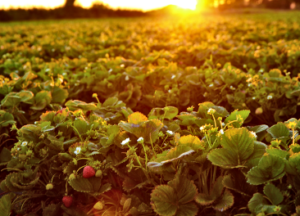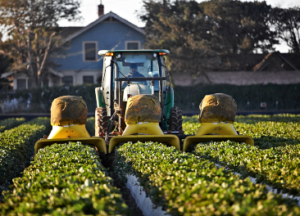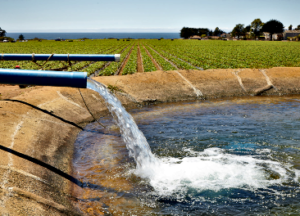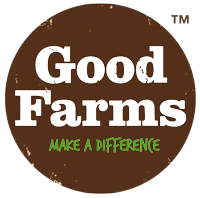
Farms depend on nature’s generous yet fragile bounty to nourish and delight you, so for a farm to be good, it has to be sustainable.
Several of our farms are certified organic by the USDA-accredited CCOF. In addition, all our farms are Equitable Food Initiative (EFI) certified. EFI audits us to ensure we follow a system called Integrated Pest Management. This system controls pests, with minimal impact on people and the environment, by managing the ecosystem. This includes using beneficial insects, like ladybugs, to feed on unwanted pests, and even includes the use of bug vacuums to suck pests right off the plants!

EFI audits our soil and water management too.
To avoid being wasteful and exhausting our fields, we try to plant only what we expect our customers to order each season. We also practice crop rotation and plant cover crops that replenish the soil, like cabbage, when a field is fallow. Composting organic plant matter, to use as fertilizer, is another way we keep our fields healthy.
To avoid wasting water, we use precise drip irrigation. We then capture the water we do use in a reservoir and recycle it several times. We even operate our own desalination system to harness water from the sea.

The fight against food waste is important to us, and we donate more than one million pounds of produce to food banks like Feeding America every year. We sometimes donate excess produce to local livestock farmers as well. Additionally, when we have healthy and tasty strawberries that don’t look right for market, we either sell them to canneries or market them as gems (when too small).
Finally, all our packaging is made from recycled materials and is itself also recyclable.
We at GoodFarms know that a farm that harms nature is a farm that harms itself, so we make sustainability a central guide as we continuously look for ways to cultivate positive change in our fields and in how we farm.
